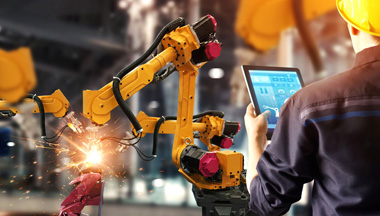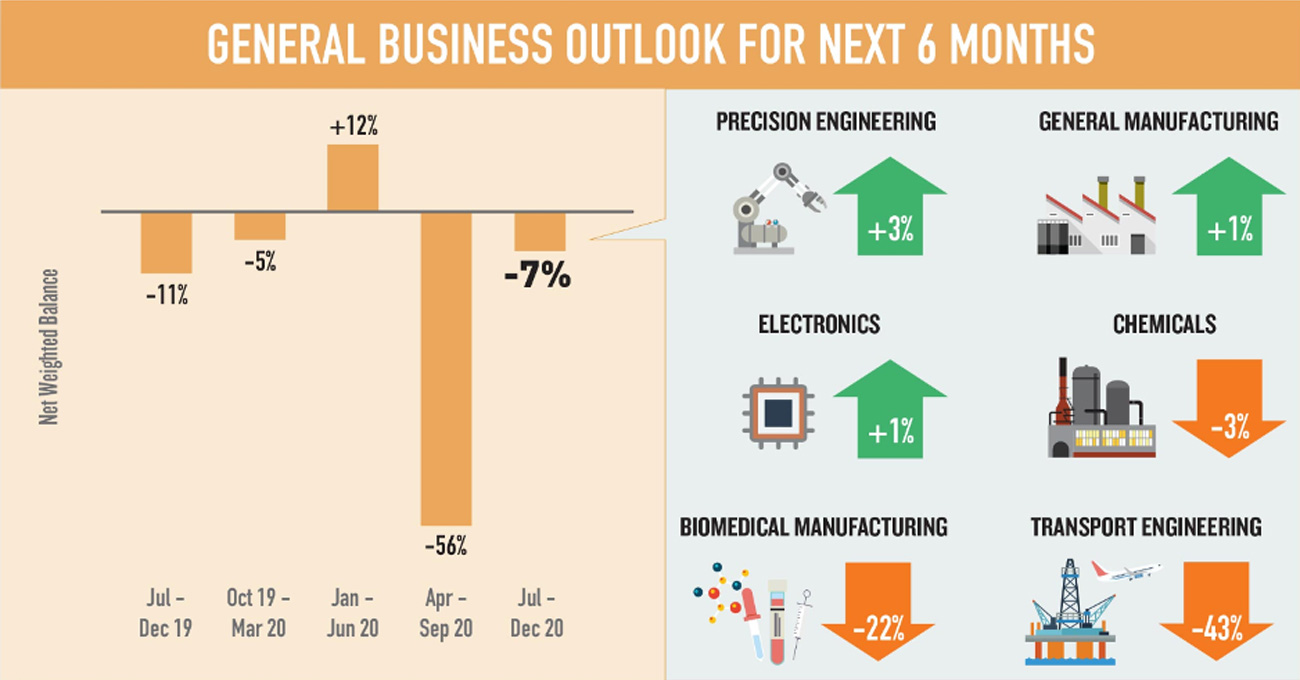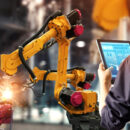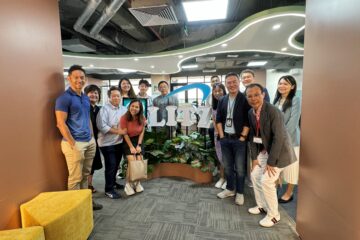
Leveraging Industry 4.0 to Overcome COVID-19
Singapore manufacturing companies are banking on digital solutions to emerge stronger from the pandemic
COVID-19 has upended businesses and disrupted operations around the world. As Singapore’s economy gradually reopens and companies adapt to the new normal due to the impact of COVID-19, business sentiments in the manufacturing sector remain subdued, though some sub-sectors are cautiously optimistic.
According to a survey on business outlook by the Economic Development Board of Singapore, a net weighted balance of 7 per cent of manufacturing companies predict a less favourable business situation for the second half of 2020 (see infographics below). This perception is a marked improvement compared to April when in the same survey 56 per cent of manufacturers predicted a less favourable business situation for the period from April to September 2020.

Source: Economic Development Board
As manufacturers grapple with an ever-changing set of challenges, those further along their digital transformation are expected to be more resilient and better positioned to compete in the marketplace. Business leaders have recognised this, and are turning to digital options in their crisis response, as 39 per cent of manufacturers have implemented a supply chain control tower to increase end-to-end visibility, while about 25 per cent are fast-tracking automation programmes to stem worker shortages, according to a McKinsey survey.
Industry 4.0 solutions — which includes connectivity, advanced analytics, robotics and automation, as well as advanced engineering technologies — have been gaining popularity even before the COVID-19 crisis, propelled by a major rise in data availability, faster and cheaper computing power, and near ubiquitous connectivity. These technologies have transformed operations across the value chain, presenting a range of digital tools and solutions from product development and procurement to customer service.
An excellent example is Procter & Gamble, which in response to disruptions resulting from COVID-19, has deployed advanced analytics to gain clearer insights into their sales and operations when employees were unable to physically attend to the stores.
But Industry 4.0 is not just for industry giants, it is for SMEs too
Small and medium enterprises (SMEs) can benefit from inexpensive, quick-win Industry 4.0 solutions in responding and adapting to the new normal. These come in many forms, such as applications that help track the health and travel data of employees, proximity sensor-equipped helmets that enforce safe distancing at work sites, remote collaboration tools such as performance dashboards, and data visualisation maps.
In Singapore, travel restrictions and capacity quotas created a manpower strain, in turn making monitoring shop floor performance difficult, especially when the primary mode of data collection is manual — often ineffective, and error prone — and supervisory work is traditionally done on-site.

Unbelievable? Here are some real examples from SMEs
To overcome this, solutions such as digital standard operating procedures (DSOP) and digital performance management (DPM) are two standouts that SMEs can consider to unlock real-time visibility and remote monitoring of labour and machine performance. Regardless of the company’s existing technological infrastructure, both DSOP and DPM can be adopted quickly and are gaining in popularity because they are affordable, easy to implement and for quick results, as attested by some small precision engineering companies that recently launched a DPM pilot on their shop floors.
Using sensors or tapping into their machines’ programmable logic controllers (PLCs), these companies were able to automate data collection, uncover useful data that was previously unavailable, and track shop floor performance on live dashboards. As a result, production supervisors were able to use the data to better monitor performance, make necessary and relevant adjustments, conduct effective performance management and optimise labour capacity and asset utilisation – all remotely.
These precision engineering companies also conducted a job redesign exercise, identifying the roles that have been most impacted by the implementation and thereafter conducting a “from-to” matrix to surface the skills gaps needed to be bridged for their employees to drive and sustain the change.
“Previously, it was difficult to manage my workers without data to show us where we did well, and where we could improve. The live dashboard provided real-time pulse parameters such as machine utilisation, which I then used to monitor performance. Being able to do so remotely was valuable during the circuit breaker when we operated in split teams and the factory was running round the clock,” said the owner of one such precision engineering company.
In a matter of weeks, each precision engineering company saw an increase of some 40-70 per cent in productivity gains, even in the current technical recession due to COVID-19
Those precision engineering companies, among others, were part of an eight-week Industry 4.0 Human Capital Initiative (IHCI) Enabler Programme administered by SBF and supported by the Workforce Singapore and partners McKinsey & Company and Ernst & Young.
Industry 4.0 does not benefit precision engineering companies only. “Our biggest problem was a lack of visibility of our labour productivity, so the project team installed an IoT solution to track one of our production lines,” echoed Qian Hao, a production supervisor with PerkinElmer Inc. “With the data, I was able to monitor real-time performance remotely, schedule tasks and manage operators more efficiently. From this, we identified 10% in productivity improvement. The visibility also helped us through the circuit breaker when most of us had to work from home.” For more company case studies, click here.
Manufacturing companies that are keen to accelerate their digital transformation are encouraged to find out more by clicking here or reach out to SBF via [email protected].
What is Industry 4.0?
For manufacturing companies, Industry 4.0 is essentially the digitisation and integration of the manufacturing process from production to delivery. Some experts have called it the “fourth industrial revolution” (the first revolution was mechanisation through water and steam power, the second was mass production and assembly lines using electrical power, and the third the adoption of computers and automation).
In Industry 4.0, computer systems are integrated and communicate with one another to make decisions without the need for human engagement. A combination of machine learning, the Internet of Things (IoT) and the Internet of Systems make Industry 4.0 a reality. Factories will become smarter, more efficient and more productive. Industry 4.0 is still evolving and there are major challenges, in particular the skills upgrading of the workforce to take on new responsibilities.
By Joanne Guo, Assistant CEO, Strategy & Development, Singapore Business Federation (SBF)


















